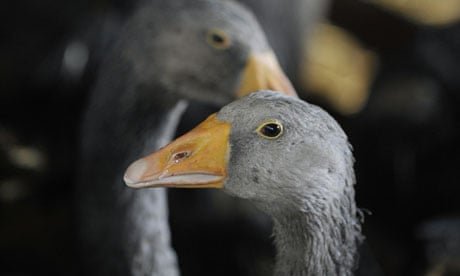Foie gras has been taken off the menu in the House of Lords after complaints from animal rights campaigners.
Lords catering chiefs have been criticised for serving up the delicacy – which is controversial because of the way geese and ducks are treated in its production – in the opulent Barry Room restaurant.
But a Lords spokesman disclosed on Thursday that the luxury pate would no longer be served when peers, who broke up for Christmas on Wednesday, return in the New Year.
"It will not feature on menus from January," he said.
Foie gras, which is already off the menu in the House of Commons, is made by force-feeding geese and ducks with grain before they are slaughtered for their swollen livers.
Food producers are banned from force-feeding animals to make the product in the UK, but it is still available from specialists and in restaurants.
Campaign group People for the Ethical Treatment of Animals (Peta) won support from a number of peers in its calls for the pate to be banned from the Lords restaurants.
"We are delighted that the House of Lords will join the House of Commons in taking a stand against cruelty and removing this most un-British of products from its menus," Peta's associate director, Mimi Bekhechi, said.
Agriculture minister David Heath recently urged consumers not to buy foie gras because of the inhumane method of producing it.

Comments (…)
Sign in or create your Guardian account to join the discussion